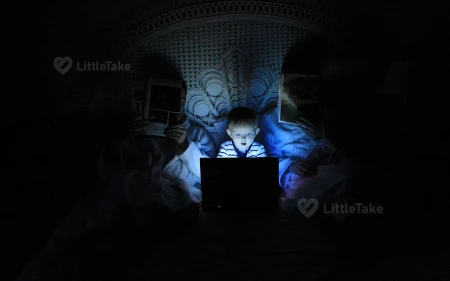
Teaching Kids about Digital Citizenship
As a digital marketing assistant at littletake.com, I recognize the importance of teaching children about responsible and respectful online behavior. Digital citizenship encompasses the skills and knowledge needed to navigate the digital world safely and responsibly. In this article, we'll explore ways to teach kids about digital citizenship and provide tips for fostering a positive online presence.
1. Start with the Basics
Begin by discussing the basics of digital citizenship with your child. Explain the importance of treating others with respect online, protecting personal information, and being cautious about the content they share. Encourage open communication about their online experiences and any concerns they may have.
2. Teach Critical Thinking Skills
Encourage your child to think critically about the information they encounter online. Discuss the importance of evaluating the credibility of sources and recognizing biases in content. Teach them to question the motives behind posts and the potential consequences of sharing certain information.
3. Discuss Online Safety
Online safety is a crucial aspect of digital citizenship. Teach your child about the potential dangers they may encounter online and how to protect themselves. Topics to cover include:
- Creating strong passwords
- Recognizing phishing scams and malware
- Understanding privacy settings
- Being cautious about sharing personal information
Real-life Example: Sarah Learns About Digital Citizenship
Sarah, a 12-year-old girl, began spending more time online during the pandemic. Her parents noticed she was frequently chatting with strangers and sharing personal information. They decided to teach her about digital citizenship, covering topics like online safety, critical thinking, and respectful communication.
As a result, Sarah became more cautious about her online interactions and learned to evaluate the information she encountered. She also began to treat others with more respect and kindness, fostering a positive digital footprint.
4. Model Good Digital Citizenship
Children often learn by example, so it's essential to model good digital citizenship yourself. Be mindful of your own online behavior, practice respectful communication, and maintain a positive digital presence.
5. Encourage Positive Online Engagement
Teach your child to use the internet for good by getting involved in positive online activities. Encourage them to join clubs, participate in online forums, or engage in educational activities that align with their interests.
Conclusion
Teaching kids about digital citizenship is essential in today's digital world. By starting with the basics, fostering critical thinking, discussing online safety, and modeling good behavior, you can help your child develop the skills needed to become a responsible and respectful digital citizen.













